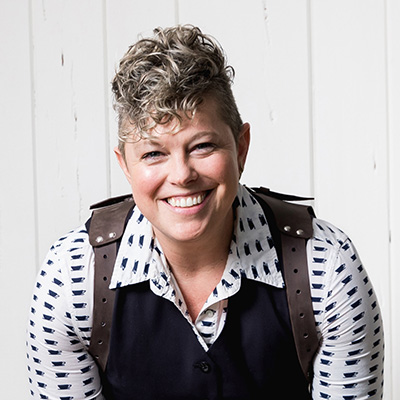Leading a well-established and successful creative services firm isn’t for the faint of heart. Day in and day out, agency leaders have to provide the long-term vision for the company, cultivate teamwork and company culture, attract new clients, negotiate contracts, manage relationships, and make solid decisions—and that’s just at work.
Like all of us, agency owners have personal lives—household responsibilities, relationships with family and friends, financial obligations and more. The personal vision each of us has for this life and what we want out of it isn’t so different from what any other human wants: purpose, happiness, connection, and love.
However, running a business with so many moving parts—which is, indeed, a part of what most of us do want in our lives—can make it exponentially harder to achieve some of our deeply human desires.
When We’re Done With This Life, What Do We Regret?
No one wants to live a life filled with regret, yet it can happen despite our best efforts. In the book The Top Five Regrets of the Dying: A Life Transformed by the Dearly Departing, author Bronnie Ware outlines what people most often regret at the end of their lives—which gives us great insight as to what we should focus on while we’re here.
- I wish I’d had the courage to live a life true to myself, not the life others expected of me.
- I wish I hadn’t worked so hard.
- I wish I’d had the courage to express my feelings.
- I wish I had stayed in touch with my friends.
- I wish that I had let myself be happier.
It’s heartbreaking to imagine yourself, at the end of your life, wishing you had done things differently and can no longer make changes because you’ve run out of time. The good news is that we still have today, and as agency leaders, we can reverse-engineer that list to help us make the personal and professional changes required to move forward confidently, with little chance of regret.
What Kinds of Changes Are We Talking About?
The necessary lifestyle changes may be different for different people, but here are a few things to consider:
How do you define success? Revenue and a huge number of employees aren’t the only ways to consider your business successful—and they may not even be the best ways. Consider a holistic definition of success for your agency and for your life. How are you impacting the lives of the people you lead and serve? Do you support your community or worthwhile causes? Is there something more to your company than simply making money?
Do you want to spend more time with loved ones and on personal passions? What would it take for you to achieve a work/life balance? How many hours do you work compared to how many you would like to work? What tasks can be delegated to give you more free time? Take some time to learn how to best manage your creative team, for example, or give extra attention to making the best hire the first time so you can save time and stress in the long run. Create a plan for how you can work less, and set a deadline for it, as you would with any goal.
How do you express emotions? Trouble doing so can lead to significant issues in any aspect of your life, but in an agency setting, where successful projects and relationships start with effective communication, past and current emotional issues can cloud your judgment and impact your interactions. It’s important to get a grasp on what you’re feeling and learn to manage it, perhaps by writing it down, confiding in someone outside of work, or communicate a minor issue with a team member before it escalates.
Who can you call at 3:00 am? Do you still have those types of deep relationships? No matter your role, a leadership position can be isolating as well as time-consuming. How can you rearrange your day to make time to maintain deep connections with your friends?
Are you happy? Happiness is different for everyone, but unhappiness is easy to spot. In her book The Happiness Project, Gretchen Rubin outlines a few underlying aspects that can contribute to our happiness, including spending time on things we truly find enjoyable (not on things we think should make us happy), eliminating clutter, and cultivating meaningful relationships. It’s up to you to identify your own underlying causes of unhappiness—chances are, there are a lot of small ones that add up in a big way. From that point, you can work to clear out anything that no longer serves you in an effort to create a professional and personal life full of joy and purpose.
This HubSpot article lists “taking care of yourself” as one of their top nine habits for improving productivity; taking care of yourself is an easy way to sum up what you can do to avoid a life of regret. When we’re truly taking care of ourselves, we’re making time for friends, family, and hobbies, we’re not working too hard, we’re aware of our emotions and do what we need to do to feel better, and we’re focused on what would make us happy—not merely what would make someone else happy.
In the end, it’s not heroic to sacrifice everything for the sake of your agency. The good news is, you create your own reality, and it is possible to achieve success without foregoing happiness in the process. If you’re feeling burnt out, angry, frustrated, or overwhelmed, it’s time to take stock of what matters to you at the deepest level and prioritize those things in your life. Let’s talk »



Best article of this decade – period. Thank you!
Thanks so much, David. I’m grateful for your words and happy that you derived value from this piece. This is actually the trajectory of my content going forward, so I appreciate the affirmation that this direction resonates with you.
Yep, this one is a keeper! Thanks, Kelly.
Thanks Tricia! I’m so glad you liked this post. See you in Breckenridge soon!
This is a great article. Timely and needed across the board. Very universal in it’s content easily understood and applicable!! Thank you David Mack for sharing this with me. Thank you Kelly Campbell for penning this piece!!